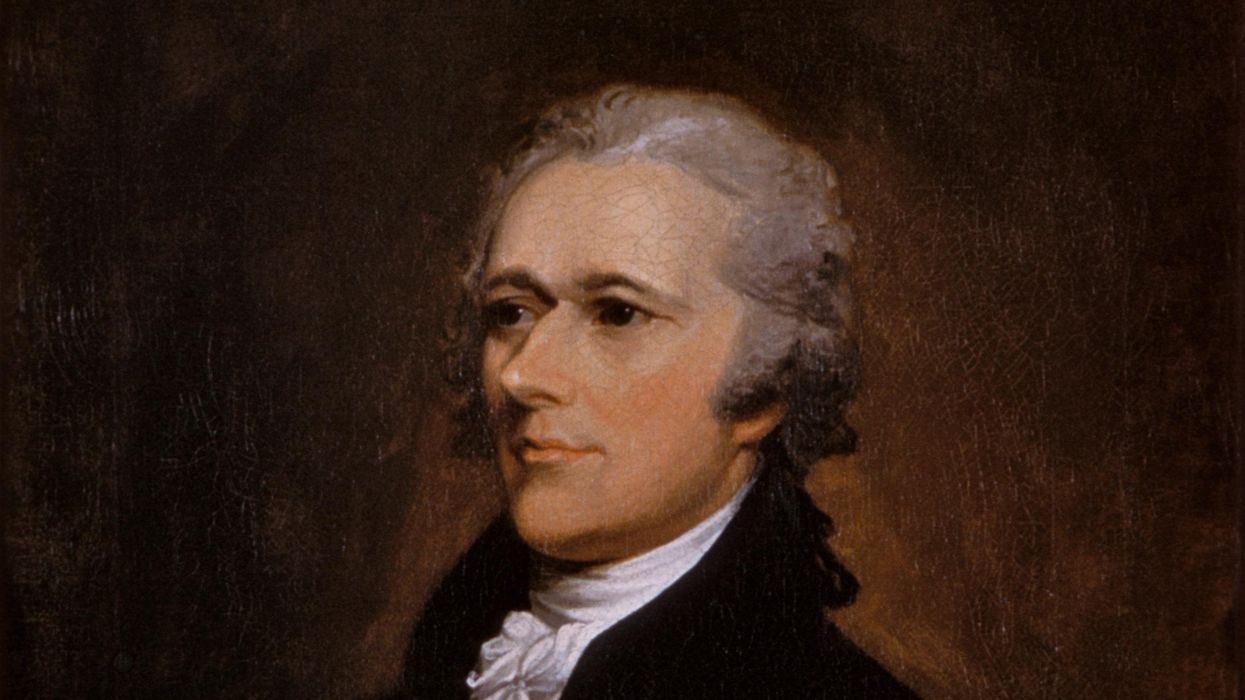Earlier this week, the Senate failed to bring the Freedom to Vote Act to the floor, the third time this year a major voting reform bill has been blocked.
As members of Congress continue their efforts to pass the Freedom to Vote Act and the John Lewis Voting Rights Advancement Act in the coming weeks, some opponents aren't just rejecting the bills on their merits. Instead, they're making a historically inaccurate and dangerous "federalism argument" — that elections must be left entirely to the states.
Senate Minority Leader Mitch McConnell said last month that elections are "not something the federal government has been historically involved in" and called the Freedom to Vote Act"an assault on the fundamental idea that states, not the federal government, should decide how to run their own elections."
You don't need to look far to disprove this hide-the-ball argument. Article 1, Section 4 of the Constitution states: "Congress may at any time by Law make or alter such [election] Regulations." In "Federalist 59," Alexander Hamilton warned of the dangers of vesting voting and election laws entirely in the states, writing that "an exclusive power of regulating elections for the national government, in the hands of the State legislatures, would leave the existence of the Union entirely at their mercy."
Beyond the text of the Constitution and guidance of the Framers, the federalism argument is disproved by 200-plus years of federal election regulations. That history includes bipartisan bills that McConnell voted for, like the 2009 Military and Overseas Voter Empowerment Act, the 2006 reauthorization of the Voting Rights Act (which would effectively be revived by the John Lewis Voting Rights Advancement Act) and the 2002 Help America Vote Act that McConnell took a lead role in crafting.
In particular, there is a long history of federal law on House elections and district lines, one of the areas covered in both the Freedom to Vote Act and John Lewis Voting Rights Advancement Act. Hamilton specifically writes about this in "Federalist 59," stating that "the national government would run a much greater risk from a power in the State legislatures over the elections of its House of Representatives."
It's no surprise, then, that Congress has always regulated the number of members in the House of Representatives. It has set criteria for the way voters elect their U.S. representatives since at least 1842. A series of laws passed in the late 19th century and early 20th century established norms for congressional redistricting relating to contiguity, compactness, and relative population. A 1967 federal law is the reason every American is now represented by only a single member of the U.S. House. The Voting Rights Act of 1965 (re-authorized in 1982 and 2006) also sets rules around congressional redistricting.
As our Framers anticipated and as our leaders have acted upon since our nation's founding, there are times when federal election rules are needed for all Americans, typically drawing from election laws in our state "laboratories of democracy."
Now is certainly one of those times when federal action is necessary. State legislatures are incentivized to gerrymander their congressional districts in increasingly outlandish ways. Politicians choose their voters, representation is distorted, and nearly all districts are lopsided for one party. Without a national solution, individual state reforms can equate to disarming unilaterally, and too often state reforms are falling short.
Claiming that Congress should sit on its hands is wrong. If our elected leaders have good-faith reasons to vote against the Freedom to Vote Act and even the John Lewis Voting Rights Advancement Act, they should make those objections heard.
Indeed, not only do this year's bills deserve an up-or-down vote, Congress should also look to the future, with the Fair Representation Act as the most comprehensive path to make House elections fairer. This bill would replace our current tiny congressional districts with larger multimember congressional districts elected through proportional ranked-choice voting. In addition to giving voice to those in the minority and the full spectrum of voters, this approach would make it much harder to gerrymander congressional districts.
Regardless, it's time for McConnell and others to give up the false "states' rights" argument designed to avoid accountability. There is no question as to whether Congress has a role to play in regulating district lines and elections. Given the breakdown of state voting norms, it's time for Congress to do the job our Framers intended.




















Trump & Hegseth gave Mark Kelly a huge 2028 gift